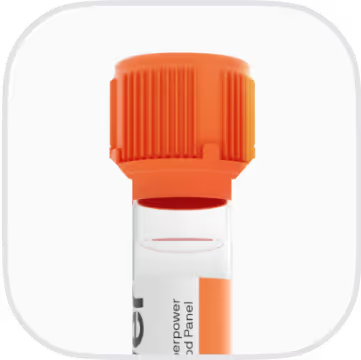What are Chronic Infection biomarkers
Chronic infection biomarkers are signals in blood that reveal when a microbe is still present and provoking a long-running immune response. They help distinguish ongoing infection from a past encounter, indicate how active the process is, and show how the body’s defenses and tissues are being affected over time. Some markers reflect the immune memory and persistence of a pathogen, such as pathogen-specific antibodies (immunoglobulins like IgG) and circulating pathogen pieces (antigens, nucleic acids). Others capture the body’s sustained alarm system, including inflammatory mediators (cytokines, chemokines) and acute-phase proteins. Additional markers track collateral damage or immune strain, such as cell-activation signals, complement activity, and tissue injury proteins from affected organs. Together, these measures create a biological storyline—presence, pressure, and impact—so clinicians can confirm chronic infection, gauge its momentum, identify the systems under stress, and follow recovery with therapy. In short, they turn a hidden, smoldering process into something visible, measurable, and manageable.
Why is blood testing for Chronic Infection important?
- Spot ongoing inflammation that may signal chronic infection.
- Flag persistent elevations in ESR, CRP, WBC, or SII suggesting long-standing immune activation.
- Clarify unexplained fatigue, low fevers, or weight loss by revealing inflammatory burden.
- Best interpreted with your symptoms and cultures to guide next diagnostic steps.
- Track treatment response; falling CRP and WBC suggest improvement, while ESR often lags.
- Explain patterns that hint bacterial versus viral causes using white cell shifts.
- Protect fertility by flagging inflammation linked to pelvic or systemic infectious conditions.
- Support pregnancy by monitoring inflammation associated with miscarriage or preterm birth risks.
What insights will I get?
Chronic infection blood testing provides insight into how your immune system is functioning over time and how your body manages persistent or low-grade inflammation. This matters because chronic inflammation can subtly disrupt energy production, metabolism, cardiovascular health, cognitive clarity, reproductive function, and overall immunity. At Superpower, we assess four key biomarkers for chronic infection: erythrocyte sedimentation rate (ESR), C-reactive protein (CRP), white blood cell count (WBC), and the systemic immune-inflammation index (SII).
ESR measures how quickly red blood cells settle in a test tube, which reflects the presence of inflammation in the body. CRP is a protein produced by the liver in response to inflammation and rises when there is ongoing immune activity. WBC counts the number of white blood cells, which are essential for fighting infection and responding to immune challenges. SII combines information from WBC, neutrophils, lymphocytes, and platelets to provide a broader picture of immune system activation and inflammation.
When these markers are within healthy ranges, it suggests that your immune system is stable and not under chronic stress from hidden infections or ongoing inflammation. Persistent elevations may indicate that your body is responding to a long-term immune challenge, which can affect the stability and function of multiple organ systems.
Interpretation of these biomarkers can be influenced by factors such as age, pregnancy, acute illness, certain medications, and laboratory methods. These variables should be considered to ensure accurate understanding of your results.







.avif)



.svg)





.svg)


.svg)


.svg)

.avif)
.svg)










.avif)
.avif)
.avif)


.avif)
.avif)




.svg)




.avif)


